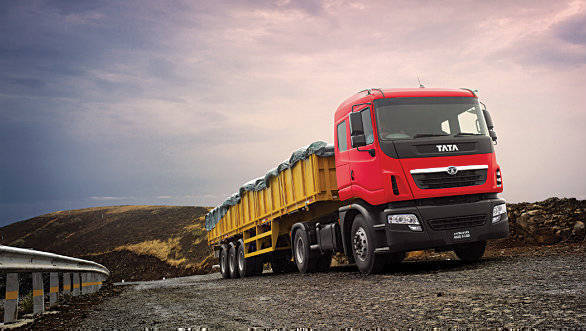How will GST transform the transport sector?
These days most people have been thinking about the Goods and Services Tax (GST) and the impact it will have on our lives. The majority feel that GST will make it easier to do business and, in the long term, reduce prices and give a big boost to our economy and increase the GDP.

From what little I have understood, one sector that could really benefit is the transport business. With the introduction of GST, all the various other taxes levied by the central and state governments are set to disappear, including octroi, entry tax, sales tax, excise, VAT etc. In the present scenario (this piece was written before GST became applicable), you find truck drivers on our highways waiting in queues that stretch for miles. At every state border they have to fill various forms, pay several taxes and grease palms to get things done. They employ agents to negotiate through the mountain of paperwork and get the stamps and clearances required. They need various road permits and documents to be inspected, and all this takes time, sometimes even a few days! Around most of these state border posts, you find dhabas where the truck drivers and their help can eat and sleep. There are also small shops selling goods of daily use and sometimes you also find barbers, masseurs etc. The losses incurred due to the loss in man hours, delay in delivery of goods and trucks being idle are huge. And because trucks are just left by the side of the highway, this also results in traffic jams.
I truly hope GST changes things and all these state border posts become defunct. I also pray the central government stays vigilant and does not allow state and local bodies to find other means to tax and delay our truckers. Over the years while driving all across our vast country, I have interacted closely with our truck drivers. What they fear most on our highways are the government officials and the bureaucracy they have to deal with. They also dread the corruption and the delays. Just hanging around can be stressful and sadly many truckers take to drugs and alcohol to bide away the time.
I am told if the GST is implemented properly and the state and local authorities co-operate suitably, we might actually see a complete transformation of our transport sector. According to some studies, presently a goods vehicle in India covers only 250-300km a day compared to 700-800km in developed countries. In fact the trucks lie idle almost 40 per cent of the time due to all the unproductive activities already mentioned. If the border check posts are really closed down, the less interstate compliance and reduced paper work will result in an improvement in operational efficiency, greater up-time for trucks, less idle hours and faster turnaround time. This will, of course, make life much easier for our truckers and it will also increase the profits of the transporter. With a bit of luck this may also lead to our transport industry getting more organised and specialised.
Like in developed countries, we could have principal transporters who will connect the manufacturers with the hubs. Then there could be subsidiary transporters to move goods from the hubs to the distribution centres. Finally, we can have the last-mile transporters who will take care of delivery to the customers. If this kind of organised transporting of goods happens, it can lead to reduction of heavy vehicle traffic in our congested cities and also result in more disciplined movement of trucks on our highways.
In the last few years we have seen an enormous change in the kind of trucks available to the transport industry. In fact, just recently Bharat Benz announced they have sold 50,000 trucks in India in the last 5 years! And these are state-of-the-art trucks. And we not only have them, we also have manufacturers like Volvo who were amongst the first big international names to come to our country. When they entered, they completely transformed our intercity bus travel, and to such an extent that people insisted on only taking a 'Volvo'. This continues till date. Now we also have other world-renowned manufacturers like Scania and Man Trucks. Thanks to the competition, our local commercial vehicles makers like Tata Motors, Ashok Leyland, Mahindra, AMW, etc. have upped their game too and now they also offer modern and technologically advanced products.
The Indian transporter and truck driver have never had it as good in terms of choice and quality of vehicles. With the introduction of GST, there is now a very good possibility that their lives will see a big change and business will also improve dramatically. As I said earlier, hopefully, the transport sector will get far more organised. Hopefully, truck drivers will get proper training too and will drive in a more disciplined and safe manner. Hopefully, fewer stoppages at borders and no wasting of time will reduce the stress on drivers and make them give up drugs and alcohol abuse. Hopefully, they will be more alert and reduce the number of accidents and road fatalities. Hopefully, the transporters themselves will realise that accidents are expensive and avoidable and will fit GPS systems and other devices to track how their drivers are driving. But will all this happen? Your guess is as good as mine because "Oh Darling, Yeh Hai India".
To read more of Bob's opinions, click here











